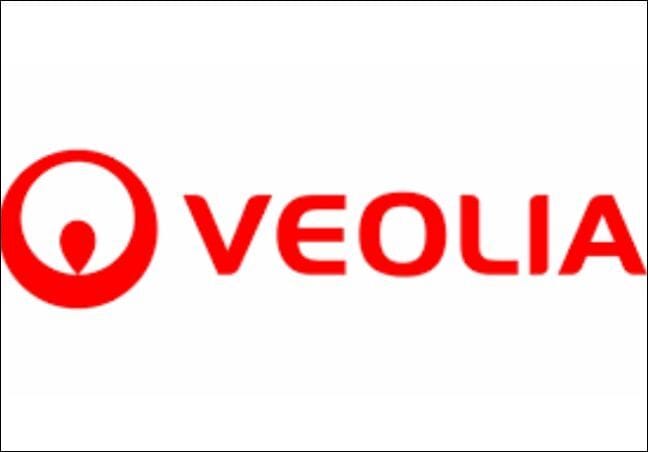- Circular Rising
- Posts
- Veolia makes a strong bet on brainpower in Africa
Veolia makes a strong bet on brainpower in Africa

From the newsletter
French environmental services firm Veolia has expanded modestly across the continent over the past year, but what sets it apart is the strength of its talent. LinkedIn data shows that 48% of its employees hold a Master’s degree, well above the industry average of 37%, highlighting a deliberate tilt toward advanced technical and managerial expertise.
PhD holders make up 8% of Veolia’s workforce, compared to a sector average of 6%. Clearly there is a preference for highly credentialled professionals.
The share of Veolia employees with MBAs and Associate’s degrees closely matches industry benchmarks. It seems the French prefer academic qualifications over vocational ones.
More details
Veolia’s focus on brainpower is also evident in the experience and tenure of its workforce. Though the company expanded by just 4% over the past year, adding 28 employees to reach 771, it has done so with a clear emphasis on capability and staying power rather than rapid headcount growth. New hires bring an average of 14.4 years of professional experience, while average tenure across the continent is 8.1 years.
This pattern is especially pronounced in functions like finance and legal, where average experience is at least 25 years, suggesting that the company is deliberately building institutional memory in critical areas such as governance, compliance and complex project delivery.
The company’s recent hiring trends further reinforce this positioning. Egypt and Morocco, in particular, stand out as key recruitment hubs, supported by strong university pipelines such as Cairo University, Ain Shams University and Université Abdelmalek Essaâdi, from which many of Veolia’s recent hires have graduated. These institutions supply a steady stream of talent in disciplines like electrical and chemical engineering, chemistry and business administration, all closely aligned with the company’s operational focus.
Functionally, Veolia’s workforce is concentrated in operations (26%) and engineering (14%), consistent with its core mandate in water and waste management. However, a notable strategic shift is evident in the rapid year-on-year growth of support functions. Legal has surged by 33%, finance by 19% and purchasing by 17%. This significant increase suggests a heightened emphasis on robust oversight, efficient procurement and stringent financial controls, likely in response to the growing complexity of project delivery models and public-private partnership structures in the African market.
The shift in functionality is further corroborated by the skills data. While core capabilities are still concentrated in engineering (11% of employees), water engineering (10%) and water treatment (9%), a subtle but important change in operational emphasis is occurring. These traditional core skills are showing slight yearly declines in the number of employees possessing them. For instance, electrical and electronics engineering is down 15%.
Conversely, there's growth in project-focused skills like project commissioning, which saw a 7% increase in hires over the past year. This indicates that while foundational water and engineering expertise remains crucial, Veolia is actively strengthening its capacities in project execution and management to navigate more intricate operational and contractual environments across Africa.
Geographically, Veolia’s African footprint remains anchored in Morocco (44%), Egypt (21%) and South Africa (16%). These markets are not only the company’s largest employment centres but also the fastest growing. Egypt, in particular, recorded a 6% increase in headcount over the past year.
Retention rates offer another measure of strength. Veolia’s overall attrition rate across Africa stands at just 5%, with even lower turnover in its three core markets: South Africa (3%), Egypt (4%) and Morocco (5%). Their size and stability reinforce their central role in the company’s regional strategy. Elsewhere, turnover is higher, particularly in Ghana (9%), Algeria (6%) and Côte d’Ivoire (6%), which may reflect more volatile labour markets or stiffer competition for technical talent.
Although Veolia continues to lose some employees to direct peers such as SUEZ, it is increasingly attracting professionals from adjacent industries, notably IT services and logistics. This signals a gradual diversification of its talent pool, even as the technical core remains intact.
Our take
By prioritising experience and academic depth over fast expansion, Veolia is positioning itself not just to deliver projects, but to own long-term operations. This could give it an edge in winning multi-decade service contracts where trust and continuity matter more than cost.
However, while the company’s strong preference for highly credentialled, experienced hires give it an edge, it may also narrow its talent pool. As competition for technical expertise intensifies, sustaining this model could prove challenging.
The growing weight of legal, finance and procurement suggest strong internal governance, but may also signal a top-heavy structure. As Africa’s circular economy and service models evolve, agility could matter as much as control, especially in volatile or fast-growing markets.